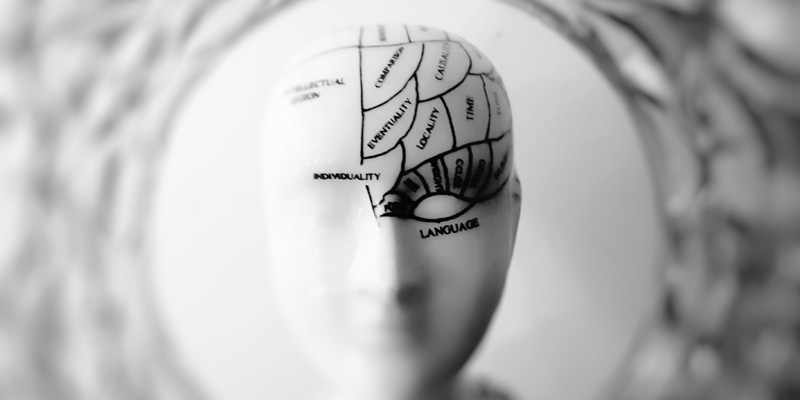Pick Your Brains
“It will not be we who reach Alpha Centauri and the other nearby stars. It will be a species very like us but with more of our strengths and fewer of our weaknesses… more confident, farseeing, capable and prudent.”
Carl Sagan. ‘Pale Blue Dot’
This was going to be a crazy idea article about increasing human intelligence then Elon Musk launched Neuralink to do just that and the idea went from ‘crazy’ to ‘mainstream’ overnight. The questions now are: how do we do it and should we do it at all?
Image: Gerd Altman / Pixabay
Building a Better Brain
‘Smart drugs’ or Nootropics have been around a while. Unfortunately there’s no Limitless-style pill to increase your brain power as yet though there is plenty of information of varying provenance available on-line and a large sub-culture of self-experimenters. Results appear modest and mixed.
We could always try adding in intelligence genes with gene editing tools like CRISPR but the problem there is that we don’t know which ones they are. While intelligence is certainly heritable there doesn’t seem to be a single gene that affects intelligence but rather cumulative tiny effects from hundreds of genes. Carl Shulman and Nick Bostrom have suggested iterated embryo selection might eventually produce a gain of 300 IQ points though, like gene editing, it requires us to know much more about what we’re selecting for.
Even if we can stomach the whiff of eugenics that genetic engineering carries, overcome the numerous medical pitfalls and weather social backlash from the nearly inevitable tragic mistakes, any biological improvements to intelligence necessarily work at a generational snail’s pace. That’s too slow for some who seek a quicker, technological fix.
The big fish here of course is Nuralink. Elon Musk’s new company was founded with the aim of producing a brain/computer interface and eventually vastly increasing human intelligence. Musk may be the life of this particular party but he’s not the first guest to arrive. Last year, entrepreneur Bryan Johnson founded ‘Kernel’ with $100 Million of his own money to start engineering what he calls a ‘nuroprosthetic’ – an implantable chip to help victims of stroke and Alzheimer’s which, it’s hoped, will eventually enable intelligence amplification.

A Trillion Moving Parts
The human brain is hugely, vastly, ridiculously complicated – “a machine with a trillion moving parts” according to philosopher Daniel Dennett. We know only the rudiments of how its various bits operate, the jury is still out on how intelligence functions and no one has a clue about consciousness. Right now we probably have as good a handle on increasing human intelligence as Jules Verne did on putting a man on the moon and while there are some clear advantages we can already see some issues, not least, who’s going to pay for it.
Freedom of thought has historically been the ultimate right but it’s all too easy to see that freedom being eroded away, or voluntarily surrendered in return for convenience, by cognitive enhancement technology. Maybe only the super-rich would be able to afford the premium service while the rest of us use ad-supported brain mods with the coke jingle going off in our heads every time we feel thirsty. What if brain mods needed updating every year or if enhanced cognition was a subscription service? Even if you keep up the payments it might turn out that your service supplier owns your thoughts – maybe read that ‘terms of service’ agreement very carefully before signing up. You don’t want software updates bricking your brain either and if you change your mind about some political candidate, religion or soft drink will you ever be able to feel fully secure that it was your own decision and not some subtle marketing virus re-writing your preferences?
Futurist Ray Kurzweil and others have suggested an analogy with cell phone technology. Wealthy early-adopters get the first stage of cognitive enhancement gadgets but we can rely on computing’s usual ‘faster, smaller, cheaper’ trick to go from expensive status symbol to ubiquitous utility in a similar time frame. Sure I have an €80 smart phone on my table right now that’s immeasurably superior in every way to the $4000 DynaTac that Michael Douglas sported in Wall Street but that might not be the best tech metaphor. Twenty years ago I watched a timelapse tsunami of new fangled DVDs sweep the VHS cassettes from the shelves of my local movie rental store. Ten years later the even newer-fangled BluRay disks appeared and I confidently expected a repeat of the previous pattern. In fact that BluRay wave stalled and crashed along with the store because everybody was getting movies via download instead.
New tech doesn’t necessarily scale like old tech. Cognitive enhancement isn’t Gordon Gecko with his comically large cell phone. It’s a fundamental change in the human condition, a massive upgrading of our primary survival tool. Handing it exclusively to an already entrenched elite of the wealthy and powerful – far too few of whom have ever shown any interest in the common good or the big picture – might well be as big a threat to the species as AI overlords.
It’s even possible that our current ‘brain-as-computer’ paradigm is as wrong as earlier steam engine, clockwork and even water-mill metaphors. From the simple neural nets of the first jellyfish, the brain has been co-evolving with the body for hundreds of millions of years and we may be mistaken in thinking that we can treat it as a discrete or disconnected system at all. In the race to be first to market it may well turn out that, in retrospect, we will wish there were apects of the science that we had understood better (as we wish we had for asbestos, nicotine and thalidomide) before ploughing ahead.
Too Clever by Half
But why try to make ourselves smarter? Won’t we have some form of artificial intelligence in a few decades that can do our thinking for us? Perhaps, but morally you can no more build a conscious AI to solve your problems than you can raise a person to farm your cotton and if we do set out to build a race of super intelligent machine slaves what can we expect but revolution? You could try to employ a super-intelligent AI but what could you offer in payment? What could a tribe of chimpanzees or a pool of paramecium offer you?
Intelligence is the one thing humans are really good at and while we might be a one-trick-monkey, it’s a damn good trick. Good enough to enable a bunch of scraggily, also-ran hominids to conquer the world. Pretty much everything you see, hear, feel or even think about is either the direct result of, or mediated by, other people’s clever ideas. Some of these ideas are old – like the writing I’m doing now. Other ideas are newer – like the computer I’m writing on, but every bolt, brick, bread, thread, and liberty of civilization is the result of our intelligence. Without it we are just a tribe of frightened monkeys, our destiny the jaws of some predator, our legacy a brief scream in the dark.
Our brains have got us this far but now we’re banging against the ceiling of what our intelligence can do. Almost every field of human endavour has grown too complicated for us to understand directly, the mental models too complex to hold in our heads, the equations too difficult to solve. So we make simpler models, solve simpler equations and hope that those answers apply – more or less – to the real thing. The devil might be in the details but how will we ever know?
Even on a day-to-day basis we exist in a network of social, scientific and economic systems that have ballooned beyond our capacity to effectively model or manage with the mental took kit of a barely evolved planes ape. Barring catastrophe, that complexity will only grow and all that’s left for our suite of brain Apps to do – those paranoid, conclusion-jumping, group-thinking, us-and-them-ing, brain shortcuts that served us so well on the savanna – is to make mistakes.
Certainly there will be some who prefer the comfort of ‘business as usual’, to maintain the imagined safety of the status quo. The problem with this strategy is that the status doesn’t stay quoed. We live in a dynamic world. Climates change, economies crumble, pathogens mutate, asteroids impact. There’s always some new unknown rising up to bite us on the bum and every solution brings it’s own problems which need yet more solutions in a never-ending cycle. Greater intelligence (and a dollop of luck) is, as it always has been, our only slim hope for survival in a treacherously indifferent universe.
Of course, intelligence by itself is not sufficient. It’s an evolutionary adaption like three colour vision or opposable thumbs. Just a tool to help our monkey ancestors survive and like all tools it can be used to build or destroy. It won’t make us angels, it doesn’t guarantee wisdom, compassion or initiative and I’ve known very smart people you couldn’t reliably send to the shops for a bottle of milk. It is, however, a necessary condition for the application of those virtues – a self-adapting tool that enables us to become, not only smarter monkeys, but better people.
It won’t be us who reach Alpha Centauri and the other nearby stars. It will be a species very like us but with more of our strengths and fewer of our weaknesses.
Lets get on with that shall we?



